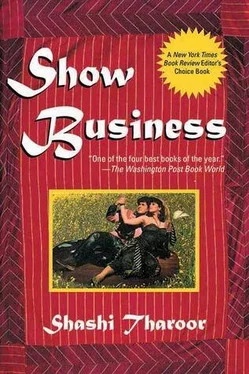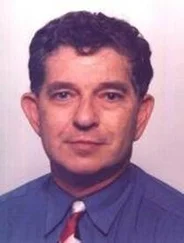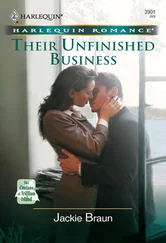(ASHOK DANCES AROUND A CAR, WRENCH IN HAND)
I’m just a good mechanic
If your car breaks down, don’t panic —
I’ll fix it;
If your engine starts to sputter
Or your oil flows in the gutter
Don’t allow your heart to flutter,
I’ll fix it.
(IN HIS SLUM, REPAIRING A CHILD’S BICYCLE, PATCHING A LEAKY ROOF)
I’m just a good mechanic
If you have a problem, don’t panic —
I’ll fix it;
If your rickshaw needs repair,
If your roof lets in the air,
Don’t worry, don’t despair,
I’ll fix it.
But the slum is to be razed to make way for a development, and Pranay, the local legislator, is in league with the developers. Mehnaz, now Ashok’s devoted admirer, is present when Ashok leads a demonstration against the demolitions. She follows him on a protest march to her father’s house. Pranay is outraged, but she refuses to reenter his home until he agrees to receive the protesters as well. He does so with ill grace, but after a bitter quarrel in which Pranay rejects their demands, Ashok storms out, Mehnaz by his side. Pranay’s hired goons give chase, but they fail to restore either their boss’s daughter or his dignity, and Ashok, aided by his slum friends (principally by his sidekick, the comedian Ashwin), routs them in style.
That night Mehnaz, newly homeless, has to share Ashok’s slum hut, and finds it difficult to stay on her side of the thin cotton sheet he has strung up as a partition. As the sound track pants in rhythm with the hero’s heartbeat, Mehnaz softly sings:
Don’t go too far —
It frightens me.
Don’t come too near —
It frightens me.
Don’t go too far, don’t come too near,
Be like a star, shine on my fear,
Enlighten me.
Don’t go too far —
It frightens me.
Don’t come too near —
It frightens me.
I want you in, I want you out,
If you go or come, I want to shout,
It’s night in me.
[At this point the film skips and jumps, scratches and crosses of light appearing in the upper corners of the frames. The censors have added to their archives of forbidden pleasures, leaving their symbol — an isosceles triangle, the inverse of the national symbol for contraception — on the certificate that precedes the movie.]
The next morning the inhabitants of the slum, Ashok, Ashwin, and Mehnaz at their head, block the bulldozers with their own bodies. Destruction and development are briefly held at bay. But then Ashok is arrested by a corrupt policeman, Kalia, and though a court soon sets him free, he loses his job and home (to the tune of a lugubrious version of the title song).
But all is not gloom and despair. Mehnaz (who, it turns out, is only Pranay’s adopted daughter) and Ashok have a simple slum wedding. This takes place in a suspiciously spotless temple that only a studio could have devised. Their exchange of garlands is blessed by Ashwin and assorted extras.
When the audience returns from intermission, it is election time. The Indian public is to enjoy its five-year privilege of choosing the agents of the country’s recurring misrule. Ashok is to challenge Pranay in his own constituency.
The election campaign has all the effervescence of a Bollywood cabaret. Montage: Pranay’s men declaim his virtues from loudspeaker-equipped vehicles and distribute rupee notes to the truckedin crowds at his rallies; Ashok’s neighbors accost individuals in the street with palm-folded sincerity. Pranay has glossy posters and gigantic hoardings of himself expensively displayed on every convenient site (and some inconvenient ones), while little urchins with charcoal scrawl Ashok’s electoral symbol — what else but a simple wrench? — on every available wall, sometimes ripping down a picture of his rival to make space.
At the height of the race, Pranay challenges Ashok to a public debate at a sports stadium. Pranay confidently predicts that Ashok will not accept the challenge. Ashok, the villain declares, is scared, knowing his ignorance makes him a very poor match indeed for Pranay’s greater experience. Despite his misgivings Ashok has no choice but to accept the challenge. Pranay declares that his rival really has no intention of turning up for the debate. If Ashok does not come to the stadium, Pranay says, it will confirm once and for all that he is not up to the job.
On the day of the debate, with the campaign reaching its climax, Ashok is abducted by Pranay ’s thugs. The villains scheme is to demonstrate Ashok’s cowardice before tens of thousands of people. Our hero is left tied to the back of a chair in an old warehouse, a gag across his mouth.
At the stadium, where huge red banners advertise Pranay’s challenge to his rival, people are filing in. “Where could Ashok be?” Ashwin asks Mehnaz. “This is not like him at all.”
She suspects foul play and tells Ashwin about the warehouse where her father hides smuggled goods. As the sidekick sets out to rescue the hero, Mehnaz, rapidly transformed by colorful folk attire and accompanied by a half dozen pretty women from the slum, keeps the restive crowd entertained with an impromptu harvest dance. The song to which they undulate went to Number One in the Binaca Geet Mala, Radio Ceylon’s hit parade, for six long weeks:
Our message is the message of the earth}
Hope for those who’re wretched from their birth,
We want to give a break
To the little folks who make
Chapati, not cake
And have everything at stake
To prove they are humans of great worth!
Rise and shine with a smile of joy and mirth!
As the women sing and sway, clicking little sticks together and kicking up their legs, Ashok struggles with his bonds, but he cannot free himself. Ashwin arrives at the warehouse and finds it guarded by a solitary chowkidar. “What’s that?” he asks, pointing at the man’s foot; when the hapless extra looks down, Ashwin knocks him out. “The oldest trick in the script,” the comedian sighs, before smashing a window and leaping in to free Ashok.
In the stadium the dance comes to an end.
“We’ll never make it,” Ashok pants; it’s too far to run, the bus is too slow, and they can’t afford a taxi. They step out into the middle of the road, forcing a black and yellow auto-rickshaw to screech to a stop, its driver shouting imprecations. Ashok and Ashwin leap in. “To the stadium, quick!” they exclaim. “It’s a matter of life and death!” The three-wheeler’s scooter engine bursts loudly into life and they careen down the street.
At the stadium, Pranay declares that his opponent has conceded his unfitness by his absence. As Mehnaz tries to contain the restlessness of the crowd, the camera cuts back and forth between the mounting tension at the stadium and the hero’s desperate dash to get there in time.
A traffic jam! The auto-rickshaw phut-phuts to a halt before a confusion of trucks, cars, cycles, and bullock carts, horns (and horned creatures) bleating. But the driver now knows his passengers’ cause; the auto-rickshaw mounts the curb, scattering hawkers and passersby, and races exhilaratingly down the sidewalk, its driver tooting a warning with repeated squeezes of the rubber bulb that serves as his only siren.
Scene shift: goaded by a triumphant Pranay, sections of the crowd start chanting, “We want Ashok, we want Ashok.” Pranay smiles hugely as the chants intensify and the crowd begins to rise to its feet. “Enough is enough,” declares Pranay. “I cannot be expected to wait forever for someone who does not want to face the real issues in this election. I suggest we give Ashok a count of ten, and then cancel this meeting.” Mehnaz gasps in dismay, but can do nothing. “All together now,” says Pranay, and the crowd joins him in shouting, “Ten!”
Читать дальше












